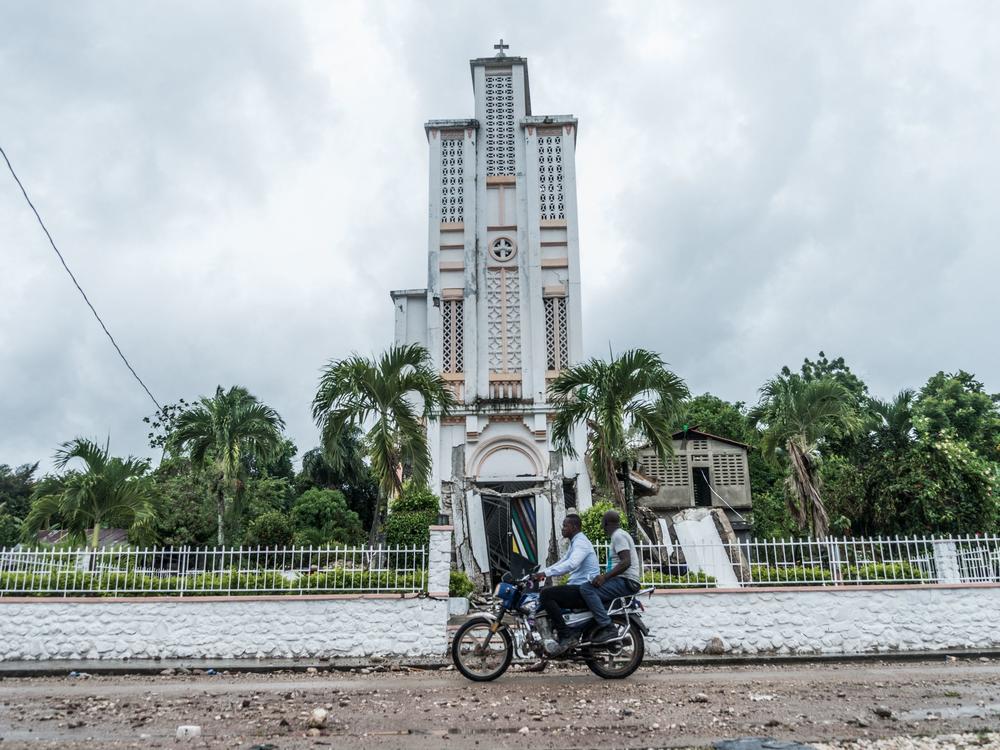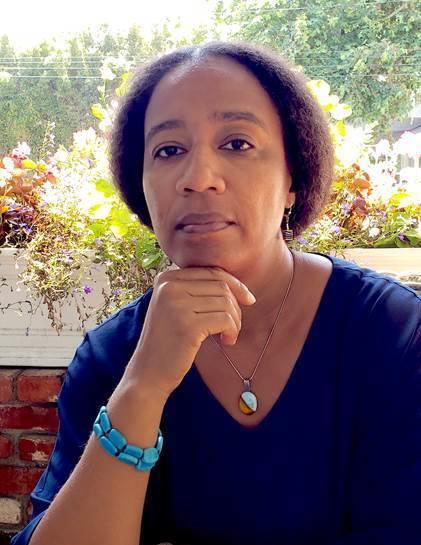Section Branding
Header Content
Haiti Deserves Careful Attention. An Author Recommends 4 Books To Help
Primary Content
Just over a week after the earthquake that rocked southern Haiti, killing over 2,000 people, tumbling buildings, fissuring roads, it's difficult for me, as a native of Port-au-Prince, to piece together my thoughts on what has happened.
So much of me remains, or has come with me, from that mountainous landscape: the red of flamboyant trees; the yells of market women; the cry of a neighbor's rooster; my grandmother's cooking. When I was born, most of my family lived in Port-au-Prince. Returns were frequent, to the point that I did not realize for years that I lived outside Haiti. It was only when summer returns ended and family began to visit us, that I realized that we had left. Still, in my mind, Haiti was home; everywhere else was temporary.
So soon after the current catastrophes, I'm surprised to hear my American acquaintances referencing the 8/14 earthquake — and the hurricane that struck a few days later — as something banal, as if to say that, this being Haiti, we can expect little more than catastrophe and chaos. Such pronouncements are couched in an "othering" of Haitians. There is also an unspoken assumption that Haitian immigrants like myself seek to assimilate, start over, forget everything and everyone left behind. But most immigrants are here because others were there. Still, even as we continue in an elsewhere in which "home" must be forged, some part of us remains in our places of origin.
Gunboat diplomacy brutalizes a newborn nation
August 14 is also the anniversary of the gathering of Bois Caïman when, in 1791, enslaved Africans gathered in a vodou ceremony to set in motion the liberation of Saint-Domingue, making it the first Black nation in the hemisphere and the second American Republic (second to the US) by 1804. In an important historical analysis of Haiti's marginalization in the Western Hemisphere, Silencing the Past, Haitian anthropologist, Michel Rolph-Trouillot wrote about how the success of the Haitian Revolution has been denied because of a belief that enslaved people could not imagine freedom, nor free themselves.
Yet, its success can be measured by the visceral global response, including France's imposition of a sizable indemnity to "allow" the new nation access to global trade, estimated in today's currency to amount to $21 billion. This, and only this, is the cause of Haiti's precipitous economic decline. Gunboat diplomacy then ensured that the fledging nation could not advance its sovereignty. Consequently, the number of Haitian immigrants and refugees to the U.S. rose dramatically in the late 20th century, only to be rebuffed, sometimes violently — as Edwidge Danticat has documented in the memoir of her uncle's death at the hands of immigration services, Brother, I'm Dying. When journalists refer to Haiti as the poorest country in the Western Hemisphere I don't cringe, as others do, because I know this history.
For those of us who are native-born, immigrant, or of Haitian descent, and who have narrow ties to family or friends there, the avalanche of news from Haiti this summer has been wrenching, from gangs holding whole neighborhoods hostage, to the assassination of the President, to the news of an inconceivable earthquake in areas mostly untouched during the earthquake of January 12, 2010, which rocked Port-au-Prince, home to a little over 2 million, and left nearly 300,000 dead. The epicenter of the recent quake is toward the southwestern tip of the island of Hispaniola which Haiti shares with the Dominican Republic. Upon hearing the news, I hoped that it was offshore, subterranean, leaving those on firm land unaffected. But, within hours, the preliminary reports stated that loss of life would be significant, the damage pervasive. The only "good" news is that the capital appears untouched.
Aid without consulting the suffering — a vicious cycle
The first images out have come from Haitians themselves, circulated on social media. One man narrates his walk down a chaotic street filming collapsed buildings. "There were people there," he says, "they probably died." Then, "it looks like January 12." It is those on the ground, already suffering losses of life and home who will start the work of recovery and reconstruction. Then, within very little time, those activating the principle of the konbit, of the collective, will be pushed aside by larger entities who think they know better.
A vicious cycle is about to reignite, the features of which are already predictable: Plans for reconstruction without consultation with those most affected, camps for displaced people, disaster capitalism. If readers do not remember what happened to aid after the 2010 earthquake, I would suggest they seek out Raoul Peck's film, Fatal Assistance, and Beverly Bell's book Fault Lines, both of which document the period meticulously. The present moment requires us to recognize, as Bell writes, "for every home destroyed, a story of life or death." Both the dead and those remaining are owed the respect of our not looking away.
That first night after the earthquake of 8/14, with the memories of 2010 returned, many chose to sleep outdoors, for fear of the earth swaying again, for fear of another collapse, whether or not they were themselves in newly affected areas. Makenzy Orcel's novel, The Immortals, gives voice to the weight of these recollections: "Imagine for a moment that the sky is made of concrete. That this thing lasted an eternity. That the earth can no longer stop shaking. That the sun can never come up again."
Many of us don't have to imagine: some lived it first-hand. For others, this is how the weight of the losses felt. Whether we were here, or there, we defy forgetting. What matters now is how, remembrance in hand, the next moments are faced. How all of us, together, can make sure that history does not repeat itself endlessly.
Myriam J. A. Chancy's new novel on the 2010 Haiti earthquake, What Storm, What Thunder is forthcoming from Tin House in October.
Copyright 2021 NPR. To see more, visit https://www.npr.org.
Bottom Content




